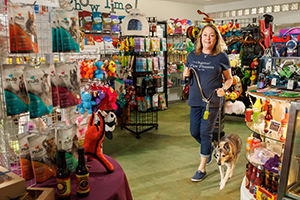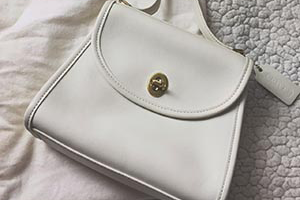College student, Lauren Lee, loves fashion, so doing it for others through e-commerce sites has proven the perfect side hustle.
Retail clothing racks are a bit sparse these days, due to supply-chain challenges brought on by the pandemic. But thrift stores and resale sites are having a moment.
“I’m almost always wearing secondhand,” says Lauren Lee, a recent college graduate in the Bay Area of California. “What’s nice is there’s a huge amount of uniqueness, and it’s really easy to swap out your wardrobe. You get to give something a new life, with the added benefit of just saving so much money.”
She’s not alone in her enthusiasm.
Thirty-three million U.S. consumers bought secondhand clothes for the first time in 2020, and 76% of them plan to increase their spending on secondhand over the next five years, says ThredUP, a resale company that produces an annual report on the industry.
It’s a combination of increased attention on sustainability – buying used clothes reduces the impact on the environment – and growth in the number of clothing resellers and resale sites.
“It’s incredible the amount of clothing waste that gets dropped off every day,” Lauren says. “Reselling is good for the environment, and I’m really excited to be part of it, because I think this is how we need to go forward.”
She’s been working both sides of the equation for several years now.
She started as a buyer, looking for good deals and finding them on resale sites like Poshmark and eBay. She soon realized her own closet could use some whittling down, so she started posting personal items for sale, eventually adding to her inventory through donations from friends and treasure-hunting at thrift stores. Her side gig as a reseller on ebay, Poshmark and Mercari helped pay her bills during college.
As for her personal wardrobe, favorite secondhand finds have included a silk All Saints dress, blue Birkenstocks and a kimono by the designer Issey Miyake. The latter retailed for $1,500 - Lauren paid $125.
The process of buying secondhand has honed her instinct for delayed gratification, she says. Take that silk dress. She saw it in a store three years ago. It was $300.
“I said to myself, ‘I’m just going to think about this dress.’ I never stopped thinking about it. I set up an eBay alert for it, I stalked Poshmark for it, and eventually like three years later, I got the dress, and it was $50.”
Traditional retailers are catching on. Lululemon now sells gently used items from its line of athletic wear. Patagonia does the same at wornwear.patagonia.com, where customers can both trade in their gear and buy used items. And Walmart.com sells thousands of pre-owned items through a partnership with ThredUP that launched in 2020.
“It’s a big shift in the fashion industry,” Lauren says. “ I don’t think you’re going to be able to escape secondhand.”
Laurens’ resale tips:
- Provide great customer service. Answer questions promptly. Be nice. Ship as quickly as possible, making sure items are clean and neatly packaged.
- Top brands are important, but don’t buy something for the brand alone. Look at the style as well. “If there’s not a buyer willing to pay for it, then you don’t really have a market. It’s worthless,” Lauren says.
- Per the rules on some resale sites, your buyer won’t be able to return an item if it doesn’t fit, so make sure you include detailed measurements.
- Rule of thumb: The more standardized the fit, the more people are willing to pay. You can earn more with sneakers, coats, purses and the like because they are a safer bet for buyers than a slinky dress.
- When buying for resale, avoid fast-fashion items that retail for $30 or $40. By the time you discount your original price and then negotiate with the buyer (as is typical on resale sites) you’ll be left with little profit.
- When shipping, don’t overdo the wrapping. Many buyers are environmentally conscious and frown on waste, Lauren says.
- Regardless of the gig you choose, make sure you’re doing something you enjoy, because you are your own taskmaster. “Find something you’re passionate about,” Lauren says. “If you don’t like it, you won’t do it.”












































